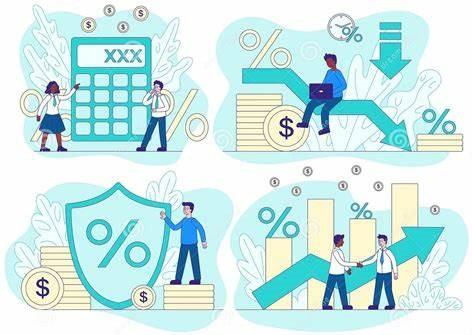What is Business Credit?

Business credit refers to the creditworthiness and financial reputation of a business entity. It is a measure of a company's ability to obtain financing, loans, and trade credit from lenders, suppliers, and other business partners based on its financial history and performance. Business credit is distinct from personal credit, which refers to an individual's creditworthiness.
Business credit is established and tracked using various factors, including the company's payment history, credit utilization, length of credit history, public records (such as bankruptcies or judgments), and other financial information. It helps lenders and suppliers assess the risk associated with extending credit to a business and determines the terms and conditions of credit offered, such as interest rates, credit limits, and repayment terms.


Maintaining a positive business credit profile is essential for several reasons. It allows businesses to access capital for growth, invest in new opportunities, manage cash flow, and establish relationships with suppliers. Good business credit can also help negotiate better terms, lower interest rates, and attract potential investors or partners.
World Class features
To build and maintain strong business credit, companies can take several actions:

Establish a legal business entity
Registering your business as a separate legal entity, such as an LLC or corporation, helps separate personal and business finances, which is crucial for building business credit.

Obtain an Employer Identification Number (EIN)
An EIN is a unique nine-digit number issued by the IRS to identify a business for tax purposes. It is often required when applying for business credit.

Open business bank accounts
Maintaining separate business bank accounts for transactions and expenses helps demonstrate financial stability and manage cash flow effectively.

Pay bills on time
Consistently making payments on time to suppliers, lenders, and other creditors helps establish a positive payment history, which is a significant factor in determining creditworthiness.

Monitor and review credit reports
Regularly checking business credit reports from credit bureaus like Dun & Bradstreet, Experian, or Equifax allows you to identify and correct any inaccuracies, as well as track your credit standing.

Build relationships with suppliers
Establishing trade credit relationships with suppliers who report payment information to credit bureaus can help build positive credit history.
Use business credit responsibly
- Managing credit utilization, avoiding excessive debt, and only borrowing what is necessary helps maintain a healthy credit profile.
- Remember, building business credit takes time, and it requires consistent financial responsibility and good business practices.
- Establishing a high Paydex Score. 85 or higher
The Paydex score is a credit scoring system provided by Dun & Bradstreet (D&B), a leading business credit bureau. It measures a company’s payment history to suppliers and vendors.
Paydex Score features
Building a strong Paydex score involves the following steps:

Establish a D&B profile
Ensure your business has a D-U-N-S number, which is a unique identifier assigned by D&B. If you don't have one, you can request it for free on the D&B website.

Start making payments
Begin establishing credit by making purchases from suppliers that report payment information to D&B. These suppliers should have a credit relationship with D&B and be willing to provide trade references.

Pay on time or early
Consistently make payments to your suppliers on time or even earlier than the due date. Timely payments significantly impact your Paydex score. Aim to pay within the agreed payment terms or even before the due date if possible.

Choose suppliers that report to D&B
Not all suppliers report payment information to credit bureaus. When selecting suppliers, prioritize those that report to D&B to ensure your payment history is being tracked.

Monitor your D&B report
Regularly review your business credit report from D&B to ensure that the information is accurate and up to date. Check that all your payments are being reported correctly.

Increase the number of suppliers reporting
Work on establishing credit relationships with more suppliers that report to D&B. The more positive payment experiences you have reported, the stronger your Paydex score will become.

Maintain low credit utilization
Keep your credit utilization ratio low, which means not utilizing too much of your available credit. It's advisable to use only a portion of your credit limit to demonstrate responsible credit management.

Review and dispute inaccuracies
If you notice any errors or inaccuracies on your D&B report, promptly contact D&B to dispute and correct them. Accurate reporting is crucial for an accurate Paydex score.

Be patient and consistent
Building a strong Paydex score takes time. It requires consistent on-time payments and a history of positive credit relationships. Stay committed to maintaining good credit practices over an extended period. Remember, the Paydex score is specific to Dun & Bradstreet, and other credit bureaus may use different scoring models. It's important to build a comprehensive business credit profile with multiple bureaus to have a well-rounded representation of your creditworthiness.
